You’ve probably heard the saying “abs are made in the kitchen”—and there is an element of that phrase that is true for building a firm butt as well! As a Registered Dietitian with over 11 years’ experience in sports performance, weight loss, and women’s health (you can find me at Top Nutrition Coaching), I recognize that while incorporating specific glute-activating exercises into your workout routine on a regular basis is essential for building your glutes, incorporating these nutrition tips can help set your body up for success and support a nice, firm butt when combined with a solid exercise routine!
1. Increase Protein Intake

This one probably won’t surprise you. Protein is the building block of muscle, and increasing your intake is essential for muscle growth and repair. This is especially important when you're doing exercises targeting the glutes. Include a variety of protein sources in your diet, such as lean meats, fish, tofu, tempeh, legumes, cottage cheese, Greek yogurt, and eggs. Each of these provides a unique profile of amino acids necessary for muscle development. Animal proteins will contain all essential amino acids. Soy-based foods are plant-based sources of complete proteins but otherwise pair plant proteins (like beans and rice) to create “complete protein” sources and ensure that your body is getting necessary protein building blocks (amino acids). (Sources here and here.)
Related: I Lost 70 Pounds After Stop Doing These 7 Things
2. Eat at Regular Intervals (including post-workout)

Prioritize balance with main meals (breakfast, lunch, and dinner). This means including quality protein, a little healthy fat, complex carbs/fruits, and ½ your plate veggies! Between meals, opt for snacks that are high in protein. Including protein throughout the day can help meet your daily protein needs, crucial for muscle repair and growth, while also supporting steady energy levels. Options like Greek yogurt, cottage cheese, or a handful of almonds provide good protein and can help keep you full between meals. Your post-workout meal or snack is crucial in determining how effectively your muscles recover and grow. A combination of protein and carbohydrates within 90 min to 2 hours after a workout helps replenish energy stores and repair muscle tissues. This doesn’t have to be anything fancy! If your workout falls before a regular meal, no need to incorporate an additional snack, just go into your meal. If it doesn't, simple snack options include Greek yogurt with berries, a protein shake, a piece of fruit with a small handful of nuts, or even ½ of a turkey sandwich on sprouted or whole grain bread. (Source here.)
3. Omega-3s (and Healthy Fats in general)

Omega-3 fatty acids, found in foods like salmon, chia, hemp, and flaxseeds, as well as walnuts, are known for their anti-inflammatory properties. Other healthy fats include avocados, olive oil, other nuts/seeds, olives, and avocado oil (there are others). They can help reduce muscle soreness and inflammation post-exercise, aiding in quicker recovery and muscle growth. Including omega-3 rich foods and healthy fats in your diet supports overall muscle health and can enhance the results of your butt-toning exercises. Omega-3s also have the added benefit of supporting healthy HDL levels (the “good” cholesterol) so eat up!
4. Incorporate Healthy Complex Carbohydrates

There is no need to fear carbs when they’re coming from “real,” whole-food sources! Complex carbs are essential for muscle growth, energy and also include important vitamins and minerals to support recovery. They break down slowly in the body, providing a steady source of fuel and also contain fiber, which aids in digestion and maintaining steady blood sugar levels. Some of my favorite complex carbs include sweet potatoes (especially Okinawan Purple sweet potatoes which are also extremely high in antioxidants), quinoa, and oatmeal. Other options to incorporate are whole grains (wild rice, buckwheat, bulgur, farro, etc), fruits, and starchy vegetables. Consuming these in the context of a balanced meal (protein, healthy fats, complex carbs, veggies) provides your body with the necessary fuel for your workouts, ensuring you have enough energy to perform exercises that target the glutes. (Source here.)
Related: 14 Superfoods that Sculpt a Flat Belly
5. Eat Enough

Skipping meals and/or trying to cut back on macronutrients can hinder your progress. As you build more lean muscle, your basal metabolic rate increases and you require more calories. If you’re not fueling enough to support your training, your body will break down muscle rather than build it. This doesn’t mean going wild on processed foods and simple sugars which are more likely to promote fat storage and trigger inflammation, but instead, focus on whole, “real food” sources! (Source here.)
6. Stay Hydrated

We all know that adequate hydration is vital for overall health, but did you know that it can also directly impact muscle tone and function? Water is essential for metabolic processes and helps transport nutrients to your muscles, crucial for growth and recovery. Dehydration can lead to muscle fatigue, reducing the effectiveness of your workouts. Drinking plenty of water throughout the day ensures that your muscles are well-hydrated and function optimally. A good rule of thumb is to aim for ½ your body weight in ounces of water per day. If you tend to forget to drink, I’d suggest setting alarm reminders on your phone until it becomes a habit! (Source here.)
7. Boost Magnesium Intake

Magnesium is one of the main supplements that I recommend, and not just for nice glutes. When it comes to muscle formation, magnesium plays a key role in muscle function and energy production. It aids in muscle contraction and relaxation, which is vital during workouts targeting the glutes. If you don’t want to supplement, that’s fine! Foods rich in magnesium include almonds, spinach, black beans, and whole wheat. Adequate magnesium intake can enhance your exercise performance by improving muscle health and reducing the risk of cramps. (Source here.)
8. Incorporate Vitamin C Rich Foods

You probably know Vitamin C’s role in immune function, but it is also crucial for the synthesis of collagen, a protein that helps maintain skin and muscle elasticity. This is particularly important for keeping the skin firm around your butt! Foods high in Vitamin C like oranges, strawberries, bell peppers, and broccoli can help in maintaining skin elasticity and muscle recovery, enhancing the firm appearance of your butt. (Source here.)
9. Focus on Iron-Rich Foods

Iron is crucial for oxygen transport in the blood, which muscles need during exercise. Iron-rich foods like lean red meat, spinach, quinoa, and lentils can boost your endurance and performance during workouts, helping you work your glutes more effectively. If you’re consuming non-heme iron sources (any plant-based form), pair with a Vitamin C-rich food to increase absorption and double up on glute-firming benefits! (Source here.)
10. Zinc for Muscle Repair

Zinc plays a critical role in muscle repair and growth as well as testosterone which is important for building muscle (no need to fear ladies, both men and women need testosterone). It’s involved in protein synthesis and cell division, both of which are necessary for muscle repair after workouts. Include zinc-rich foods like lean meats, seafood, pumpkin seeds, and lentils in your diet to support the repair and strengthening of butt muscles. Pumpkin seeds in Greek yogurt would make for a great post-workout snack to support muscle repair! (Source here.)
11. Balance Your Electrolytes

Electrolytes such as sodium, potassium, calcium, and magnesium are vital for muscle function and hydration. They help regulate muscle contractions and prevent cramping, essential during glute workouts. Maintain electrolyte balance by consuming a varied diet, including fruits, vegetables, dairy, and, when necessary, electrolyte-enhanced water, especially after intense workouts. When using electrolyte-enhanced water/beverages, I’d avoid ones with added sugar. (Source here.)
12. Include B Vitamins

B vitamins are essential for energy metabolism and muscle tone, and deficiencies can negatively impact both performance in the gym as well as recovery. Whole grains, eggs, dairy, lean meats, and green leafy vegetables are excellent sources of various B vitamins. They can help optimize energy use during exercise, making your workouts more effective. Vegans might benefit from taking a comprehensive B-Complex to get all B-Vitamins but some plant-based sources include fortified nutritional yeast (a favorite of mine for B12), dark leafy greens and chickpeas for B6, and beans, peas & lentils for B1. (Source here.)
Related: 5 Signs You Are Burning Fat, Not Muscle While Exercising
13. Antioxidant-Rich Foods
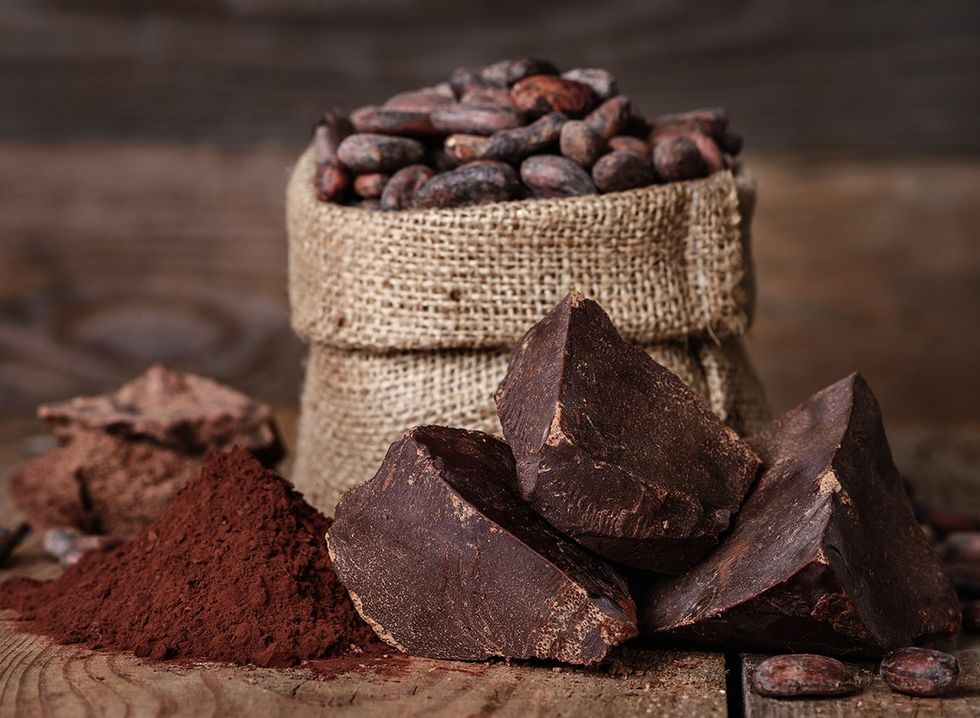
Antioxidants fight oxidative stress and inflammation, which can occur after intense workouts. You don’t need to take additional antioxidants in supplemental form, as high doses can actually have negative effects, but incorporating them in amounts within RDA recommended does provide a host of benefits! Berries (especially wild blueberries which have 10x more antioxidants than conventional), dark chocolate, nuts, and green tea (like matcha) are rich in antioxidants and can aid in muscle recovery and inflammation reduction. Simply incorporate these ingredients into regular meals such as adding wild blueberries to oats or a protein shake, mixing cacao powder into your morning coffee. (Source here.)
14. Consistency is Key!

With all of this (including the exercise component), consistency is key! We live in a time where there is a lot of instant gratification and our bodies don’t usually work that way! As cheesy as this may sound,think of it like nurturing a plant; just as a plant needs regular watering and sunlight to flourish, your muscles need a steady supply of nutrients to grow and strengthen. Following the tips above are like sunlight and water for your glutes. It’s not just about the occasional salad or protein shake; it's about making these healthy choices a regular part of your lifestyle.
15. Set Realistic Expectations

Now, let's talk about timeframes. Rome wasn't built in a day, and similarly, transforming your butt takes time. Generally, you might start noticing changes in muscle tone and firmness within a few weeks of consistent nutrition and exercise. However, more significant transformations typically become evident over months. It's important to set realistic expectations and remember that everyone's body responds differently based on factors like genetics, starting fitness level, and overall lifestyle. So, keep at it, be patient, and trust the process. Your dedication will pay off in the long run! Reach out to a Dietitian if you need accountability, encouragement, and someone to tailor recommendations that are specific to your needs.
💪🔥Body Booster: Skipping meals or trying to cut back on macronutrients can hinder your progress. If you’re not fueling enough to support your training, your body will break down muscle rather than build it. Focus on whole, “real food” sources.















 Shutterstock
Shutterstock Shutterstock
Shutterstock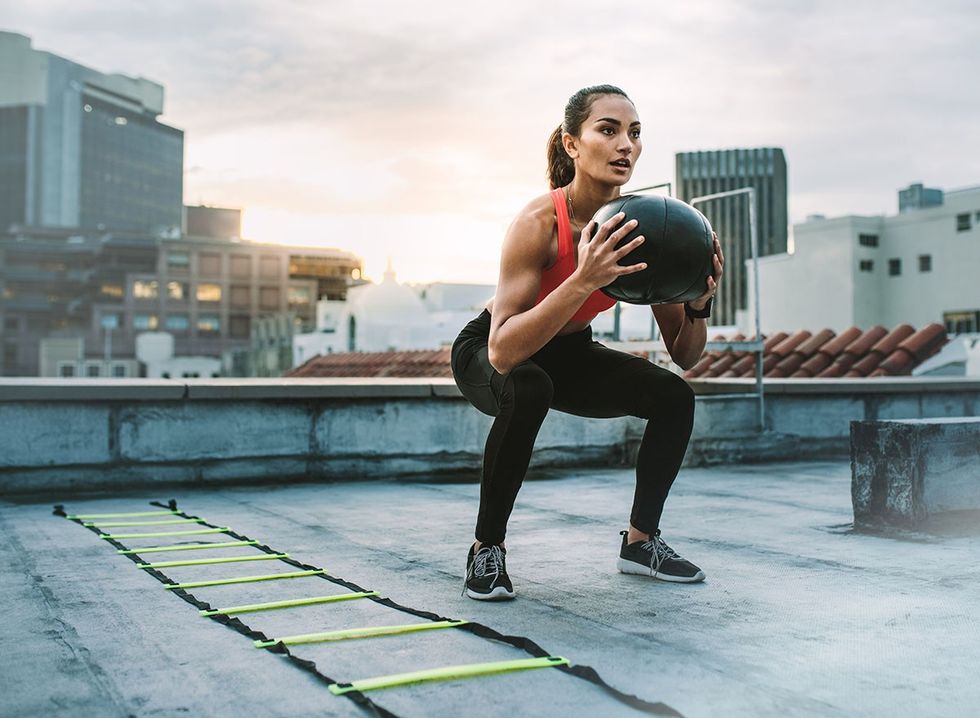 Shutterstock
Shutterstock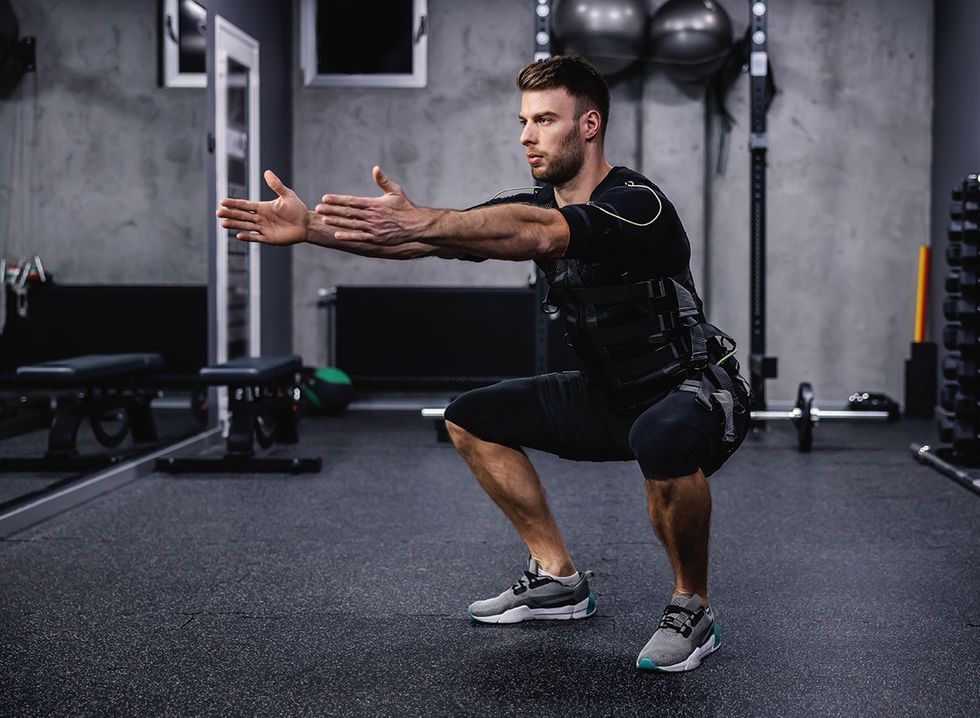 Shutterstock
Shutterstock
 DanaLinnBailey/YouTube
DanaLinnBailey/YouTube DanaLinnBailey/YouTube
DanaLinnBailey/YouTube DanaLinnBailey/YouTube
DanaLinnBailey/YouTube DanaLinnBailey/YouTube
DanaLinnBailey/YouTube Dana Linn Bailey/Facebook
Dana Linn Bailey/Facebook

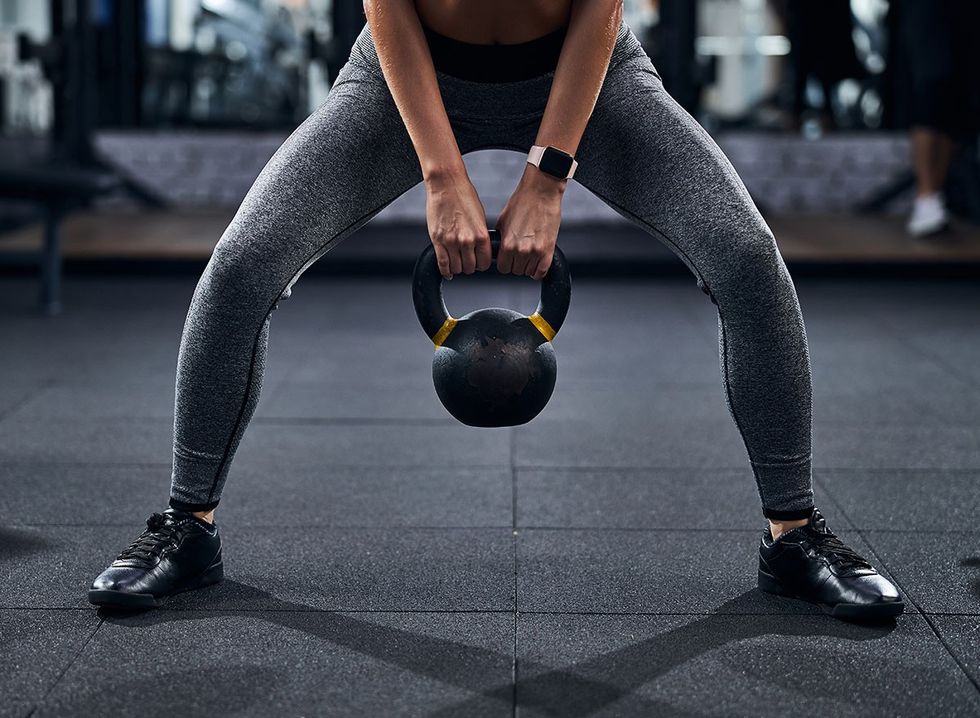 Shutterstock
Shutterstock Shutterstock
Shutterstock Shutterstock
Shutterstock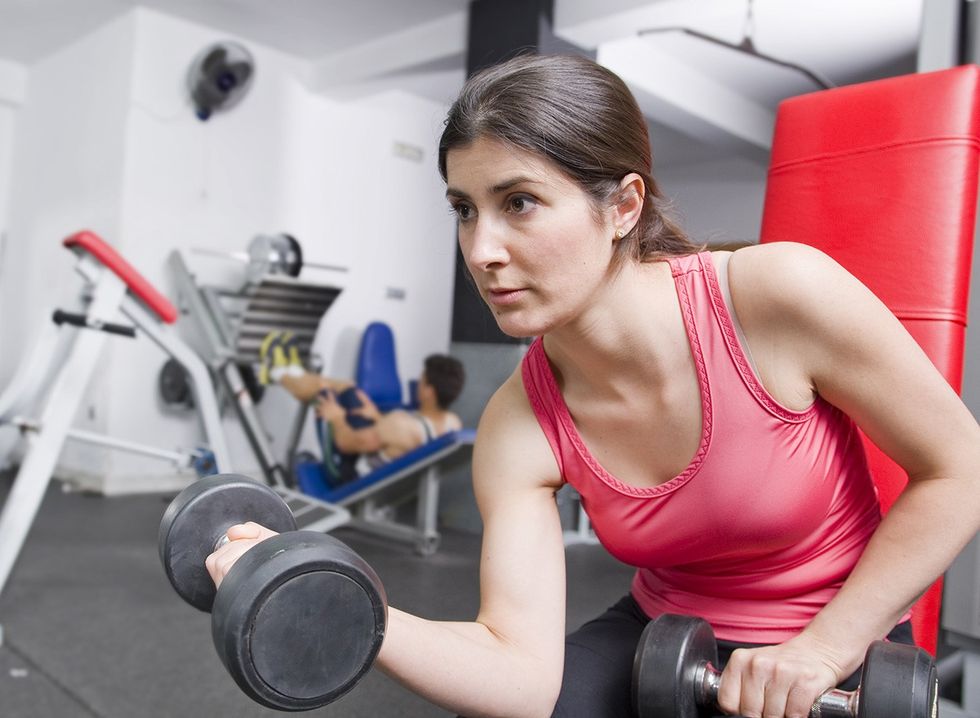 Shutterstock
Shutterstock Shutterstock
Shutterstock Shutterstock
Shutterstock Shutterstock
Shutterstock Shutterstock
Shutterstock Shutterstock
Shutterstock Shutterstock
Shutterstock
 Shutterstock
Shutterstock Shutterstock
Shutterstock Shutterstock
Shutterstock Shutterstock
Shutterstock Shutterstock
Shutterstock Shutterstock
Shutterstock Shutterstock
Shutterstock Shutterstock
Shutterstock Shutterstock
Shutterstock Shutterstock
Shutterstock

 I'm a Nutritionist and These 9 High-Protein Snacks Keep My Clients Full While Losing 50 Pounds
I'm a Nutritionist and These 9 High-Protein Snacks Keep My Clients Full While Losing 50 Pounds
 2. Processed FoodsShutterstock
2. Processed FoodsShutterstock Shutterstock
Shutterstock Shutterstock/Prostock-studio
Shutterstock/Prostock-studio Shutterstock
Shutterstock Pro TipsShutterstock
Pro TipsShutterstock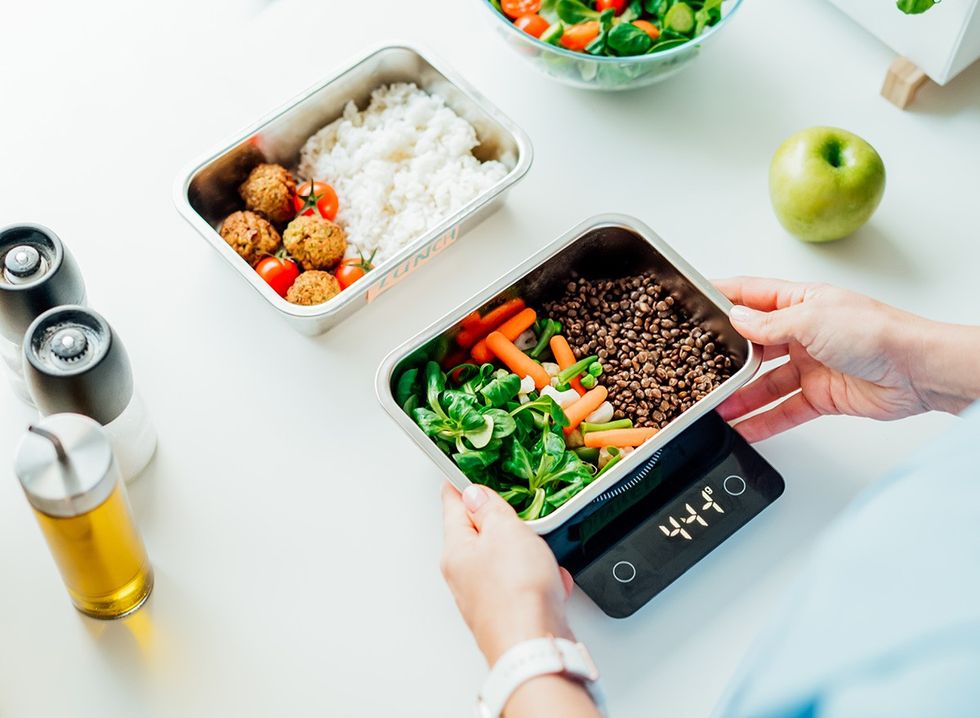 Shutterstock
Shutterstock Shutterstock
Shutterstock Shutterstock
Shutterstock Shutterstock
Shutterstock Don’t Drink as Much AlcoholShutterstock
Don’t Drink as Much AlcoholShutterstock Most Women on GLP-1s Are Making a Few Common MistakesShutterstock
Most Women on GLP-1s Are Making a Few Common MistakesShutterstock Soda and Sugary DrinksShutterstock
Soda and Sugary DrinksShutterstock Shutterstock
Shutterstock Eat BreakfastShutterstock
Eat BreakfastShutterstock And Improve Insulin SensitivityShutterstock
And Improve Insulin SensitivityShutterstock Belly Flab Strip Tip: Sugar and Fat Calories Leave Its Mark on Your BodyShutterstock
Belly Flab Strip Tip: Sugar and Fat Calories Leave Its Mark on Your BodyShutterstock Shutterstock
Shutterstock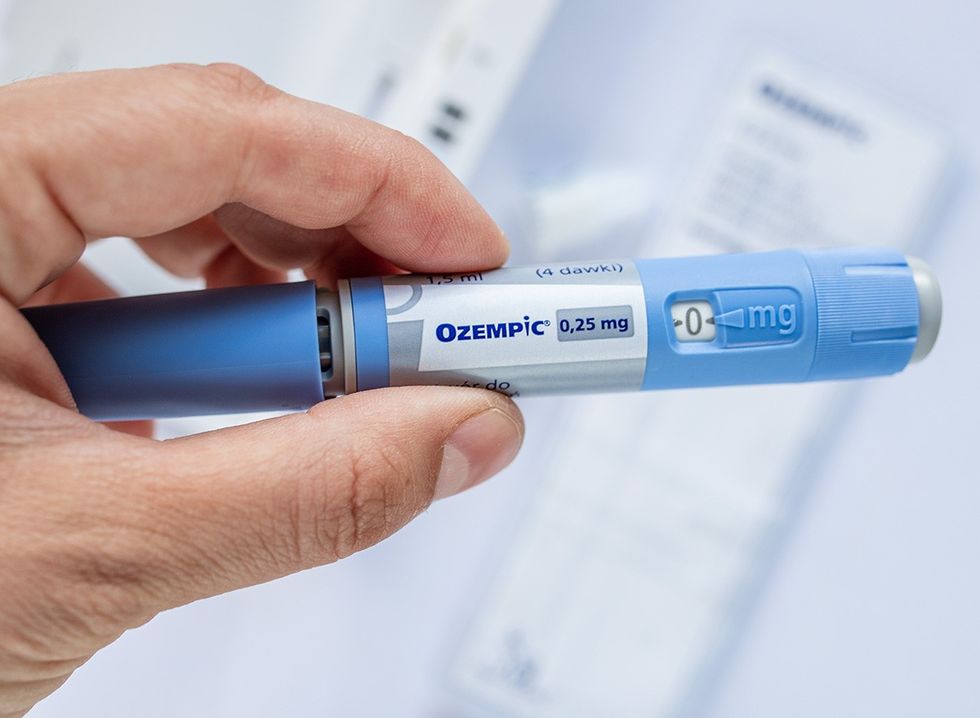 The Drugs Mimic the GLP-1 Hormone Naturally Produced by the BodyShutterstock
The Drugs Mimic the GLP-1 Hormone Naturally Produced by the BodyShutterstock 3. Deep-Fried ItemsShutterstock
3. Deep-Fried ItemsShutterstock